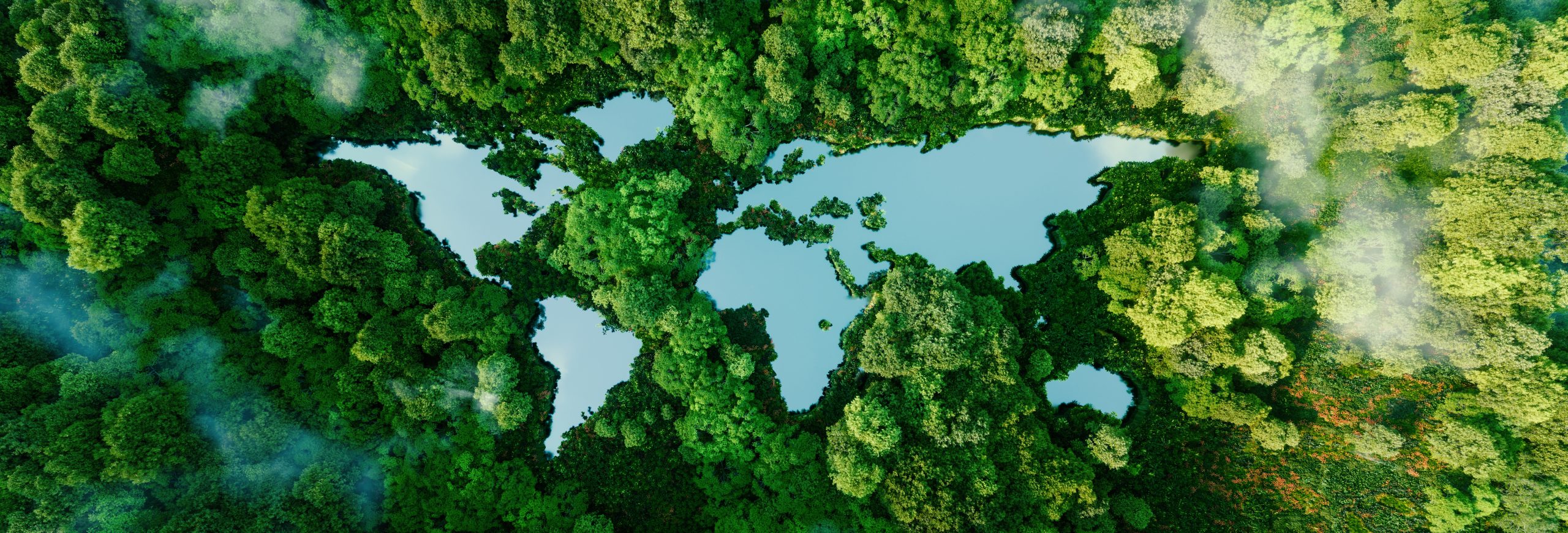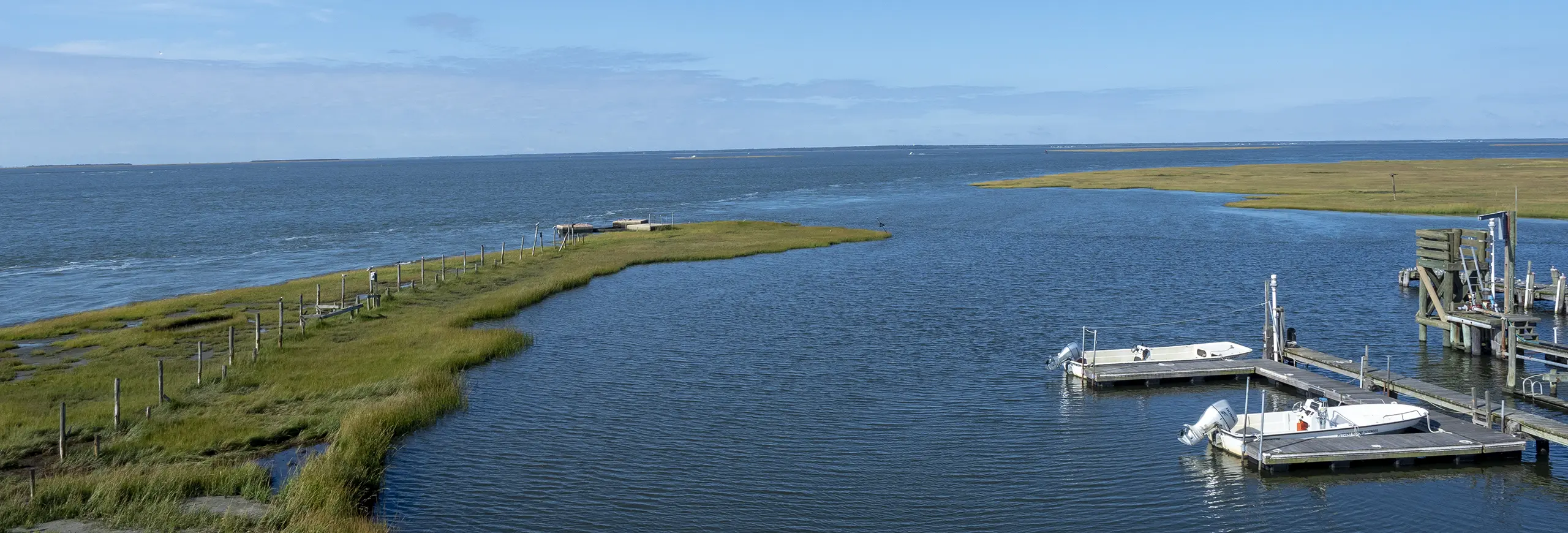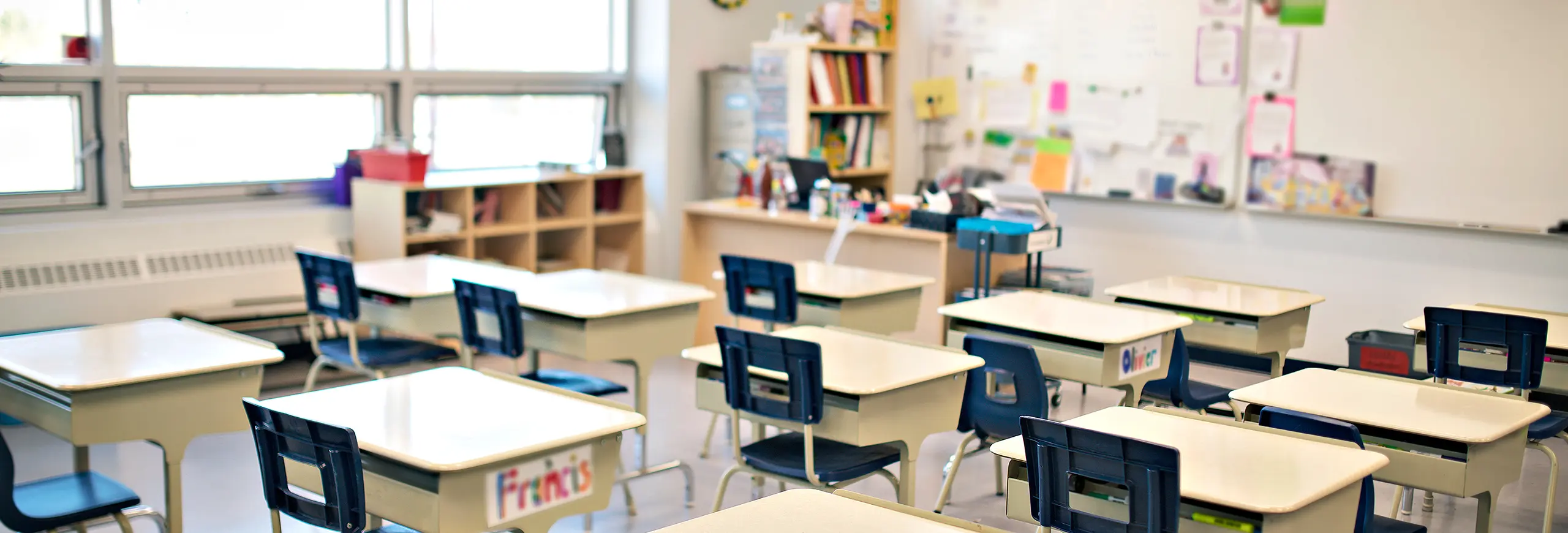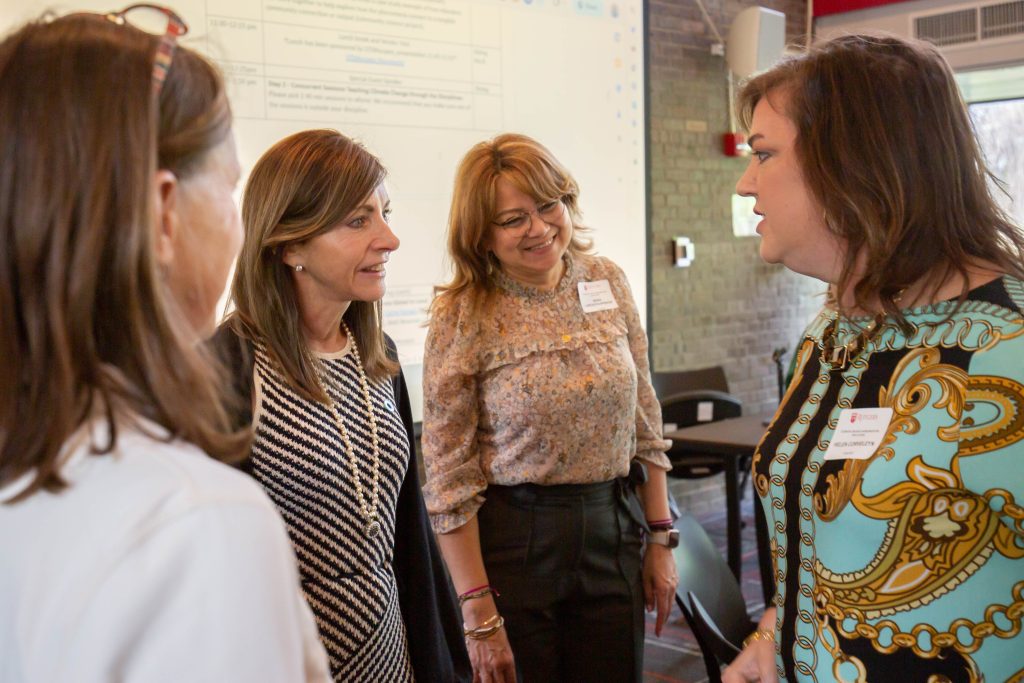Climate Education Resources

Science Interested Public
Climate Change Course Online
The University of California offers this free online course for the general public, examining the factors responsible for climate change, the biological and sociological consequences of such changes, and the possible engineering, economic, and legal solutions to avoid more extreme perturbations. The course includes weekly themes, daily mini-lectures, data visualizations, quizzes, exams, weekly assignments, a textbook, and readings.
Climate Commons
Climate Commons is an interactive map which combines NOAA data with climate impact reports. The map combines recent data on climate change indicators and emissions with geo-tagged stories on climate change.
C-ROADS (Climate Rapid Overview and Decision Support) and En-Roads (Energy Rapid Overview and Decision Support ) Interactive Tools to Understand Climate Policy Scenarios
These tools are computer simulation models to help people understand the longer term climate impacts of policy scenarios on climate and energy issues.
C-ROADS is a global climate simulator that helps people understand the long-term climate impacts of national and regional greenhouse gas emissions reductions at the global level. It allows for the rapid summation of national greenhouse gas reduction pledges in order to show the long-term impact on our climate.
En-ROADS is a climate simulator that allows users to explore the impact that dozens of policies—such as electrifying transport, pricing carbon, and improving agricultural practices—have on hundreds of factors like energy prices, temperature, air quality, and sea level rise.
The En-ROADS simulator focuses on different global climate actions across several different sectors, mainly energy, but also including land and industry. En-ROADS tests actions at the global level. It covers interventions like carbon pricing, electric transport, land use, and technological carbon removal.
The C-ROADS simulator, in contrast, focuses on specific emission reduction pledges from different countries and world regions (e.g., to meet the goals of the Paris Agreement).
C-ROADS doesn’t enable various types of actions across the energy sector to be explored, like En-ROADS, and En-ROADS doesn’t allow you to test actions at the country or regional level.
Interfacing Water, Climate, and Society: A Resource List
A list of programs offering interdisciplinary research and education that bridges social and natural sciences.
COMET MetEd
This is a free collection of hundreds of training resources/courses intended for the geoscience community including resources for meteorologists, other geoscientists, as well as students. It is hosted by the University Corporation for Atmospheric Research (UCAR).
Weather and Climate Activities to Explore the Atmosphere
Using Supporting data provided by NOAA and NASA, the University of Wisconsin-Madison offers a variety of interactive activities designed to teach the science behind weather and climate.
NOAA's Page on Climate Literacy
In response to public demand, the CommEd team provides climate data and information to help build a climate-smart, resilient nation. This climate literacy brochure reflects a broad and current effort to define climate literacy and the essential principles of climate science.
Arctic Matters Booklet
Arctic Matters: The Global Connection to Changes in the Arctic is an educational resource that introduces the threats and opportunities of the Arctic's rapidly changing environment. The booklet draws on a large collection of peer-reviewed National Research Council reports and other national and international reports to provide a brief, reader-friendly primer on the complex ways in which the changes currently affecting the Arctic and its diverse people, resources, and environment can, in turn, affect the entire globe.
Climate Change: Fitting the Pieces Together
This module discusses climate change, particularly as it is currently being affected by increasing concentrations of greenhouse gases emitted by human activities. It also covers signs of climate change, how scientists study climate, the current thinking on future changes, and what can be done to minimize the effects. Updated in 2012.

Informal Educators
CAMEL (Climate Adaptation Mitigation E-Learning) Project
CAMEL is a community of climate change educators, researchers and students working to combat the impacts of climate change by providing an online forum for sharing and accessing quality curricular materials.
Carbon Stabilization Wedge Game
The Stabilization Wedges Game is a team-based exercise that teaches players about the scale of the greenhouse gas problem, plus technologies that already exist to dramatically reduce our carbon emissions and get us off the path toward dramatic and damaging climate change. The game has been used with players from variety of groups, from university researchers to industry professionals to high school students.
Citizen Science
Scistarter is a respected citizen science clearinghouse for science interested people to get involved in climate and weather data collection.
The Association for Advancing Participatory Sciences provides a wealth of resources around its purpose of advancing knowledge through research and monitoring done by, for, and with members of the public.
EPA Air Knowledge
Air Knowledge is a partnership training program in the U.S. Environmental Protection Agency’s (EPA’s) Office of Air Quality Planning and Standards (OAQPS). AirKnowledge develops training material focused on the Clean Air Act program areas managed by OAQPS. This website is intended for use by the public and EPA staff. State, local and tribal air agency users should view training offerings on the learning management system (LMS).
FrameWorks Institute - Climate Change and the Ocean
The National Network for Ocean and Climate Change Interpretation has an online e-course in how to communicated climate change to visitors to informal science learning institutions.
FrameWorks Institute - Framing Environmental Health Toolkit
This toolkit, sponsored by the American Public Health Association with support from the Centers for Disease Control and Prevention, is designed to help environmental health professionals to frame environmental health and related issues as important policy fields and matters of public concern. The toolkit models how to use the FrameWorks Institute’s evidence-based recommendations for communicating with average Americans about these issues in ways that build public understanding and support.
Frameworks Institute - Framing for Climate Interpreters
The National Network for Ocean and Climate Change Interpretation has an online e-course in how to communicate climate change to visitors to informal science learning institutions.

Coastal Managers
Changing Public Behavior - Online
Changing Public Behavior: People and the Environment is a self-study course designed for natural resource professionals, extension educators, and environmental educators who work with communities. Through the seven units, participants build skills in identifying and analyzing behavior change opportunities and draft a plan for increasing people's involvement in an environmental situation.
Coastal Climate Change
This module provides an overview of the impacts coastal regions are experiencing and may continue to experience as a result of Earth’s changing climate. A video series within the module demonstrates effective strategies for communicating climate science.
Geospatial Infrastructure for Coastal Communities: Informing Adaptation to Sea Level Rise
Aimed at community planners, emergency managers, and other coastal zone decision-makers this video will explain how using geospatial information already available through NOAA, combined with strategic local investments in infrastructure can provide communities with the data needed to confidently plan for future sea-level changes.

K-12 Educators
General K-12 Resources
K-12
An Ocean Of Free Teacher-approved Marine Education Resources
The Bridge's Climate & Atmosphere pages link to a myriad of topical resources, including climate change, hazards, paleoclimatology, and much more.
Collection of Climate and Education Resources
Climate Literacy and Energy Awareness Network (CLEAN) is a reviewed collection of educational resources that can help build students' understanding of the core ideas in climate and energy science.
NOAA’s Teaching Climate is a searchable collection of activities, curricula, demos and experiments, videos, visualization, teaching climate and teaching energy resources.
The Essential Principles of Climate Science is an interagency guide that provides a framework and essential principles for formal and informal education about climate change. It presents important information for individuals and communities to understand Earth's climate, impacts of climate change, and approaches for adapting and mitigating change. Principles in the guide can serve as discussion starters or launching points for scientific inquiry. The guide can also serve educators who teach climate science as part of their science curricula. In addition to the guide, this NOAA website also provides links to resources for teaching climate and energy to support the Next Generation Science Standards (NGSS) Implementation through an integrated Earth system science approach in K-12 education.
Arctic Climate Connections Curriculum (high school, middle school or early college)
The Inspiring Climate Education Excellence (ICEE) project is a professional development program to help educators teach climate science within a variety of pedagogical contexts. Building upon a national needs assessment, ICEE offerings include face to face workshops, online graduate courses, webinars, videos, learning resources and informational resources.
EPA Climate Change Resources for Children and Educators
The EPA offers a variety of resources and tools for educating children on climate change.
Kids' Carbon Footprint Calculator
An interactive tool designed to educate young children on the concept of climate change and how they can mitigate their personal carbon footprint.
Explore Earth From Home: K-12 Science Education Resources
The UCAR Center for Science Education has put together a collection of free K-12 educational resources offered by UCAR to support teachers with distance learning and families who are doing their own instruction about weather, climate, air quality, the Sun and space weather, and other Earth science topics.
The resources include educational games and simulations, videos, short articles, and online books about Earth and atmospheric science. There are also links to citizen science projects and classroom activities that will also work well for K-12 students learning from home.
The UCAR Center for Science Education Learning Zone is a hub for short articles, interactives, classroom activities, images, and video resources about how the Earth works, impacts of climate change and solutions to climate change.
Middle School
Global and Regional Climate Change, University of Wisconsin
This professional development course for middle and high school science teachers was developed collaboratively by University of Wisconsin-Madison faculty and staff. This course will help bridge a climate literacy chasm by clarifying the graphs and topics presented in the summary of Physical Science Basis, a report developed by the Intergovernmental Panel on Climate Change (IPCC).
"Exploring the Challenges of Climate Science Literacy: Lessons from Students, Teachers and Lifelong Learners" (Leslie-Ann Dupigny-Giroux, published in Geography Compass)
This study presents important facets of climate literacy from the viewpoints of certain populations (e.g. children or students) or themes (e.g. climate change). It also highlights key barriers to understanding and knowledge creation such as the role of perception, beliefs, country of origin and the phrasing of survey questions. Many of these literacy frameworks were developed primarily for the formal education structure with benchmarks and principles appropriate to elementary and secondary school
students.
Ocean Sciences Sequence 6-8 Resources
Rutgers University scientists Drs. Oscar Schofield, Scott Glenn, Josh Kohut and Rutgers educators partnered with the Lawrence Hall of Science at the University of California – Berkeley to create a middle school level curriculum on climate change.
High School - College
Project Look Sharp
Project Look Sharp is a media literacy initiative of Ithaca College that develops and provides lesson plans, media materials, training, and support for the effective integration of media literacy with critical thinking into classroom curricula at all education levels, including integration with the new common core standards. They have a unit on global warming.
Climate Change Role Simulations
The Program on Negotiation at Harvard's Law School offers this Teaching Materials and Publications website with a variety of Climate Change role simulations. The role play introduces participants to the challenges associated with collective efforts to address the uncertain and dynamic risks associated with climate change. Simulations focus on flooding, development, wind farms, and more.
Our Climate Our Future
This non profit group offers a collection of educational resources for young people on climate science, climate justice and climate solutions and a multimedia presentation for high school students. An educator resources page includes lesson plans. The resources are engaging and interesting for students.
On the Cutting Edge (geosciences)
The On the Cutting Edge Professional Development Program for Geoscience Faculty brings together workshops, websites, and research activities to support highest quality undergraduate geoscience education.
Mathematics of Planet Earth
Mathematics of Planet Earth has highlighted the need for researchers with a broad view of planetary issues: climate change, quantification of uncertainty, move to an economy of sustainability, preservation of biodiversity, adaptation to change. Joining forces with other disciplines and recruiting young researchers to work on these issues is a priority. The purpose of this activity group is to provide a forum for mathematicians and computational scientists to study Planet Earth, its life-supporting capacity, and the impact of human activities.
COMET (Weather, Water and Climate)
The COMET® Program is a world-wide leader in support of education and training for the weather, water and climate enterprises, delivering scientifically relevant and instructionally progressive training and technology solutions for these topic areas.
COMET's Link to METED (portal for geoscience education)
MetEd is a free collection of hundreds of training resources intended for the geoscience community. Whether you're an experienced meteorologist honing existing skills or a student looking for new geoscience topics of interest, they have something for you. At this link you can also create an account to access other resources cited below.
Introduction to Climatology
This module provides an overview of climatology, the study of climate. The module begins by examining the drivers that combine to create the climate regions of the world—from those at the mesoscale (local) level to those at the synoptic-scale (continental) and global-scale levels. (You will need to login to the link below through your MetEd account).
New Jersey Specific K-12 Resources
In 2020, New Jersey became the first state in the nation to include climate change across content areas in the New Jersey K-12 Student Learning Standards. The resources here are designed to provide educators with New Jersey-specific K-12 climate change education information. In addition, we provide information about Rutgers Climate Change Education programs to assist New Jersey educators.
NJ Department of Education Climate Change Education Resources
Here the New Jersey Department of Education provides information examining the specific New Jersey Student Learning Standards that reference climate change, as well as those standards that might be incorporated in an interdisciplinary climate change unit by grade band.
https://www.nj.gov/education/climate/learning/
The New Jersey Department of Education has also put together instructional resources for educators including activities, lesson plans and units.
https://www.nj.gov/education/climate/instructional/
The New Jersey Department of Environmental Protection Climate Change Education Resources includes lesson plans by grade band and a summary of climate change in New Jersey for teachers. NJDEP’s main portal regarding its climate change activities and information can be found at https://dep.nj.gov/climatechange/.
New Jersey Climate Change Resource Center
The New Jersey Climate Change Resource Center has the following New Jersey specific climate change resources:
- Climate Change 101: A Guide for the Garden State with climate briefs describing the effects climate change is having on New Jersey , how to adapt and how to reduce emissions.
- Climate Stories: Experiencing Climate Change in New Jersey are brief videos of experts describing how climate is affecting New Jersey now and what our future may look like.
- New Jersey Adapt is a suite of online data visualization and mapping tools to explore how the climate has been changing and is predicted to change across New Jersey; mapping of inland and coastal flooding across New Jersey; mapping of public health risks; municipal snapshots that highlight the potential hazards associated with climate change in specific communities, and a forest management tool.
- Conferences and Webinars recordings of conferences and webinars for diverse audiences.
- Reports and Publications including its annual State of the Climate: New Jersey publication.
The Office of the New Jersey State Climatologist archives and gathers data on New Jersey climate conditions.
New Jersey Climate Change Education Hub
The New Jersey Climate Change Education Hub provides lesson plans, a searchable resource data base, and guidance for school boards.
Rutgers Climate Change K-12 Education Programs
Rutgers, The State University of New Jersey has various programs available to help K-12 educators. Our faculty and professional staff have been providing training on climate change to K-12 educators for many years including formal programs, as well as support for various STEM Ecosystem programs where we work with school districts and educators to share resource and bring formal and informal STEM education to prepare students for careers in STEM industries. Collectively, we have conducted workshops on climate change and anxiety in K-12 students, workshops as well as in-district professional development on climate change across all subject areas for more than 1,000 K-12 educators across New Jersey since climate change was mandated with the New Jersey Student Learning Standards and became effective in September 2022. As a large research institution, our faculty are researching ways to develop subject specific curricula with NJ climate change standards in mind. Some of the units responsible for these programs include, but are not limited to those noted below.

NJ’s First Lady, Tammy Murphy, meets with NJ teachers during the first Rutgers Climate Change Education Workshop in April 2023.
Office of the New Jersey State Climatologist (ONJSC). Rutgers is home to the ONJSC , where citizens can find weather and historic climate data for New Jersey going back to 1895. ONJSC links to the Community Collaborative Rain, Hail and Snow Network (CoCoRaHS), a NOAA/NSF sponsored community-based network of volunteers of all ages measuring and mapping precipitation and which also includes a CocoRaHs for schools program.
Rutgers Climate and Energy Institute (RCEI) addresses climate change across Rutgers through research, education and outreach with more than 190 affiliated faculty and research staff committed to transdisciplinary scholarship across four key focus areas: Earth systems science; human dimensions of climate mitigation adaptation and resilience; renewable energy, technology and energy conservation; and climate change communications and environmental humanities. We develop scholarly communities that move ideas into action, build research capacity to support innovation, provide seed funding for education and scholarship, and foster collaboration and amplifying impacts of climate scholarship through various modalities including working with educators.
New Jersey Climate Change Resource Center Resource Center (NJCCRC), created by state law in 2020, is dedicated to applied climate research, information, and education about New Jersey. NJCCRC releases an annual State of the Climate Report for New Jersey. Educators can find climate briefs, videos, and webinars specific to New Jersey as well as climate data and visualization tools where educators, residents and policy makers alike can understand historic and projected climate risks in NJ. These tools include the Climate Dashboard, NJFloodmapper that allows users to conduct flood exposure analysis statewide. Climate snapshots are easy access reports about the people, places, and assets at risk from climate impacts statewide, by county and for every municipality in the state. ForestAdapt visualizes data about changes in plant hardiness, tree species distributions, forest carbon density, impervious cover, and forest statistics. NJHazAdapt flooding impacts by lifeline sectors and Heat Hazard Analysis incudes a heatwave analysis and a heat Island/Overburdened Communities analysis and a health Vulnerability index. New Jersey Public Health Adapt is an online tool for exploring the potential impacts of climate change on public health.
Rutgers 4-H Program is part of Rutgers Cooperative Extension and offers STEM programs for youth grades K-13 designed to connect young people to faculty and their research. Programs are offered on campus, including Rutgers Science Saturdays, as well as opportunities for youth in their counties. 4H also works closely with teachers both formally and informally to help youth achieve leadership through STEM opportunities.
Since 1994, Rutgers Department of Marine and Coastal Sciences Education and Outreach translates translates current research to resources and programs that can be accessed by broader audiences. This team offers K-12 programs, works with community colleges and offers library programs to engage the community in marine science learning. Its polar explorer program allows educators to virtually connect to Earth's polar regions giving their students first hand experiences with scientists and scientific data. It is designed for students in grades 5-9 and includes place based activities and resources for educators.
The Center for Mathematics, Science and Computer Education (CMSE) enhances learning and the teaching of math and science in K-12 schools to show how technology can contribute to these goals. CMSE professionals have worked in more than 2/3 of NJ school districts offering STEM programs, workshops, and in-district professional development workshops. They offer both STEM and STEAM programs, Maker Space Education, Maker & Design Thinking Camps, and offer a Maker Education certificate.
Rutgers Science Explorer program, includes the Science Bus, that visits middle schools around NJ during the school year. Students learn key concepts from their school curriculum and get exposed to research practices while working on hands on activities. The activities are led by enthusiastic and extremely approachable Rutgers graduate students in STEM disciplines. The Rutgers Science Explorer also offers virtual events and in person programming on Rutgers Busch Campus.
Rutgers Geology Museum is in the heart of the Rutgers New Brunswick campus. It includes a wide variety of geological, anthropological, and natural history specimens. The museum offers free guided k-12 tours with advance arrangements. It also offers virtual tours, has an annual open house with great lecturers and varied events.
Rutgers Cooperative Extension Food Waste Team includes experts in Food Waste at Schools with a range of programs and resources addressing food insecurity at schools; composting at schools, and informative videos to educate elementary students on food systems and food waste. The Team has developed related science education units for 5th graders: New Jersey Leaves No Bite Behind and People, Plants, and the Planet. Each unit includes lessons plans with activities, labs, and videos.



